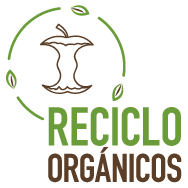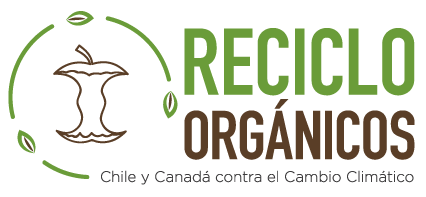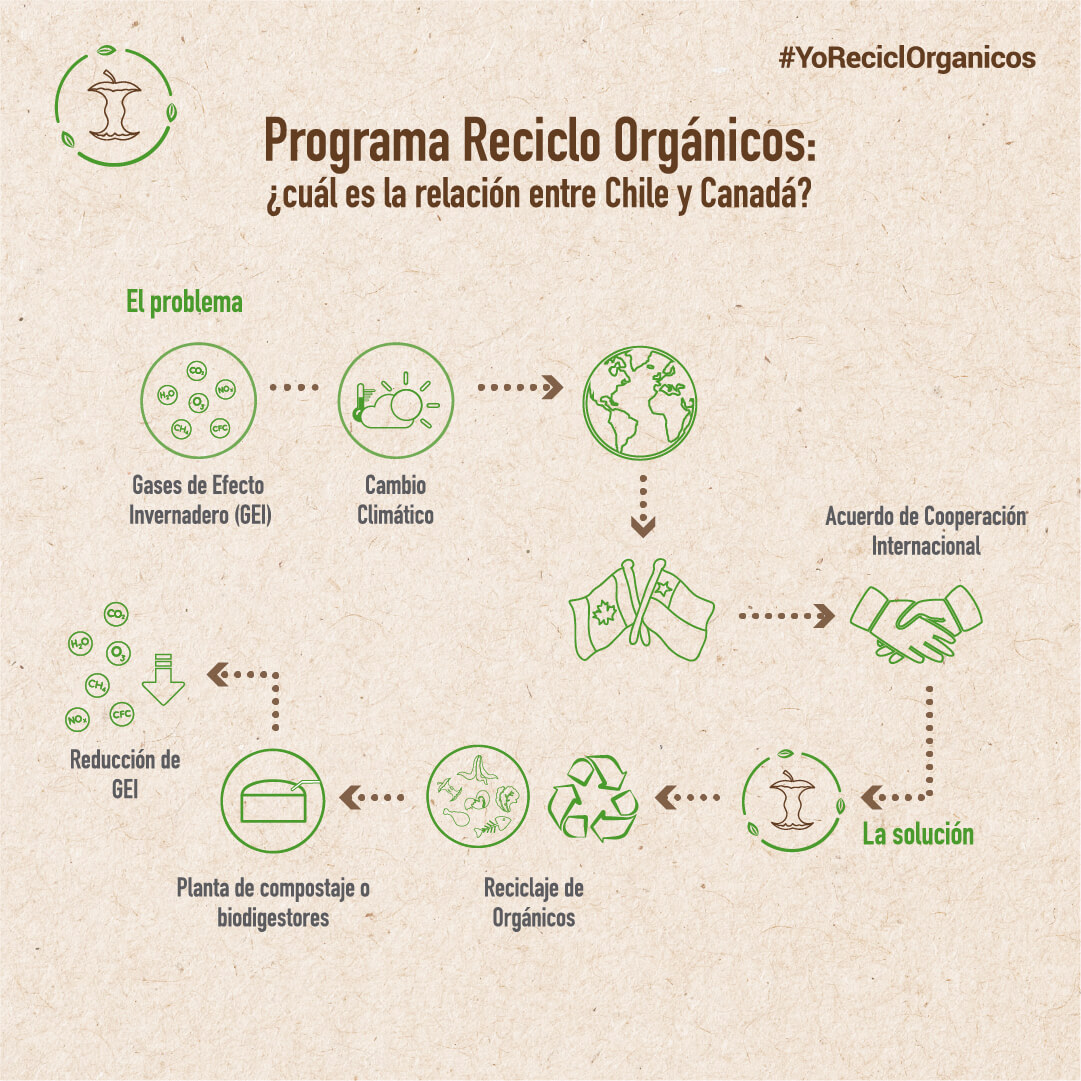Chile and Canada have had an Environmental Cooperation Agreement for more than 20 years, within which the Government of Canada seeks -among others objectives- to support the Implementation of Chile’s National Determined Contribution (INDC), to reduce the emissions of Gases of Greenhouse Effect (GHG), committed to under the Paris Agreement.
This is how Canada developed the Reciclo Orgánicos Program to help to Chile to achieve its climate change objectives in the waste sector.
Recycling Organics is promoted by the Ministry of the Environment of Chile and the Ministry of Environment and Climate Change of Canada. The Program considers an investment of 7 million Canadian dollars over a period of 5 years (2017 – 2022) and is focused on accelerating actions that help to Chile to reduce the emission of gases that are harmful to the atmosphere, in the solid waste sector, specifically those from the decomposition of organic material in sanitary landfills.
According to figures from the Ministry of the Environment, around 58% of the municipal solid waste corresponds to organic waste, such as remains of fruits, vegetables, meats and fats, coffee grounds, garden pruning, among others. When this type of waste ends up in sanitary landfills, its decomposition in the absence of oxygen generates the emission of Greenhouse Gases (GHG), such as methane gas (CH4), which is highly polluting for the environment. On the other hand, when this is managed properly, through composting or biodigestion, it is possible to reduce emissions from the waste sector by approximately 70%.
GHGs are those gases that accumulate in the Earth’s atmosphere, capable of absorbing infrared radiation from the sun, increasing and retaining heat. The excessive emission of GHG is the main factor that triggers the impacts that we are suffering from climate change.
According to the United Nations International Group of Experts on Climate Change, climate change will have widespread effects on human life, ecosystems and biodiversity.
Globally, it has already involved heat waves, floods, droughts, intense tropical cyclones and rising sea levels, and it is currently possible to see impacts in our country such as increased droughts and extreme precipitation events, melting glaciers, storm surges. and increase of the sea level, among others.
Reciclo Orgánicos Program seeks to reduce the amount of organic waste disposed of in landfills by optimizing waste management processes at the local level. To do this, the Program has identified opportunities to reduce GHG emissions through gas capture in landfills or the separate treatment of organic material by the means of composting or anaerobic digestion, resulting in the conversion of organic waste into natural fertilizer and clean energy, respectively.




